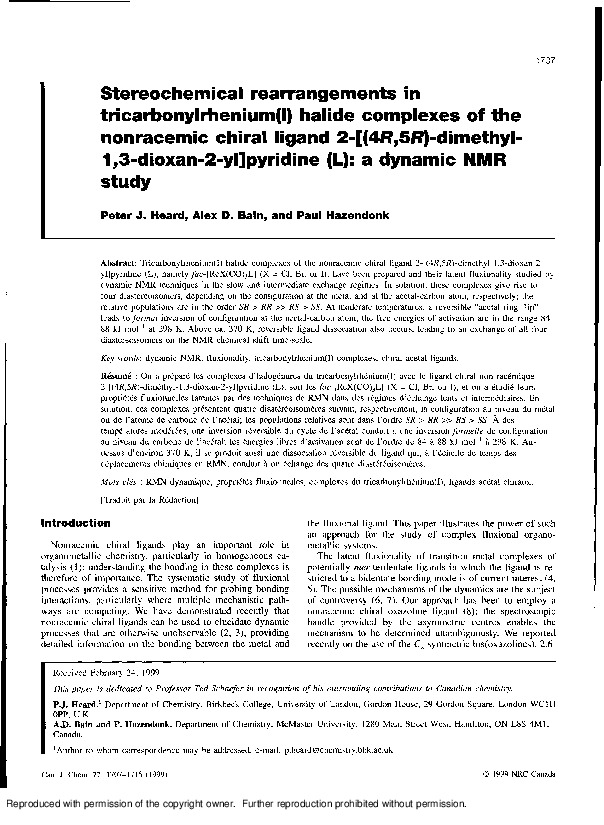
Stereochemical rearrangements in tricarbonylrhenium (I) halide complexes of the nonracemic chiral ligand 2-[(4R,5R)-dimethyl-1,3-dioxan-2-yl]pyridine (L): A dynamic NMR study
Author(s): Peter J. Heard | Alex D. Bain & Paul Hazendonk
Type of publication: Journal paper
Abstract: Tricarbonylrhenium(I) halide complexes of the non-racemic chiral ligand 2-[(4R),(5R)-dimethyl-1,3-dioxan-2-yl]pyridine (L), namely fac-[ReX(CO)3L] (X = Cl, Br or I), have been prepared and their latent fluxionality studied by dynamic NMR techniques in the slow and intermediate exchange regimes. In solution, these complexes give rise to four diastereoisomers, depending on the configuration at the metal and at the acetal-carbon atom, respectively; the relative populations are in the order SR > RR >> RS > SS. At moderate temperatures, a reversible ‘acetal ring flip’ leads to formal inversion of configuration at the acetal-carbon atom; the free energies of activation are in the range 84 – 88 kJ mol-1 at 298 K. Above ca. 370 K, reversible ligand dissociation also occurs, leading to an exchange of all four diastereoisomers on the NMR chemical shift time-scale.
Published URL: https://www.researchgate.net/publication/241808343
Date Published: February 5 2011
Publication title: Canadian Journal of Chemistry
Publisher: ResearchGate
Place of publication: Canada
Pages: 1707-1715
Subject(s): Chemistry
DOI: DOI: 10.1139/cjc-77-11-1707
Keywords: Dynamic NMR, Fluxionality, Tricarbonyirhenium (l) Complexes and Chiral Acetal Ligands
Depositing User: Basiratu Kolawole
